Continue Learning
With NAUI the learning never ends. Our experienced world-class instructors are the best at introducing divers to new skills and helping you reach your personal goals as a NAUI certified diver. In addition to the specific continuing education opportunities listed below, NAUI Instructors are authorized to build individual courses for certification based on their personal expertise and the needs of the learner. If you want to learn how to do it underwater, there is a NAUI Instructor ready to help you move to the level.
Dry Suit Diver
While dry suits were once used almost exclusively for situations such as ice diving or deep wreck diving, many sport divers are now using dry suits regularly for everyday recreational dives all over the world. Perhaps you live in a cold-water climate or would just like to be warmer regardless of where you dive. If so, the NAUI Dry Suit Diver course is for you!
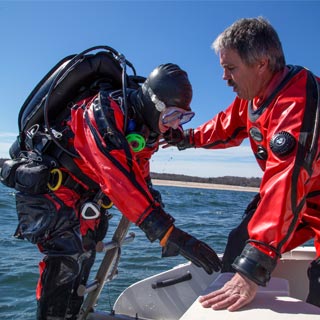
Underwater Environment
Enroll in a NAUI Underwater Environment course to learn about the physical and biological aspects of the diving environment with an emphasis on your local area. You'll study related sciences, such as oceanography, limnology, geology, biology, and ecology, and learn about various types of plant and animal life, conservation and pollution issues, the characteristics of water movement, shore, bottom and surface conditions, and how to plan dives in diverse diving locations.
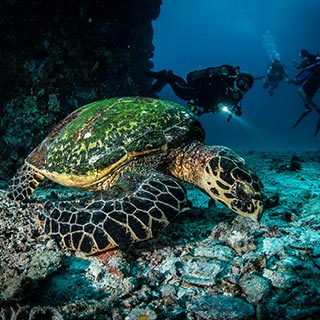
Search & Recovery Diver
At some point in your diving career, you or your buddy will either lose or find something underwater and the knowledge and skills you gain in the NAUI Search and Recovery Diver course will help you when you do. You'll learn about underwater navigation using natural and compass techniques; the problems, methods, equipment, hazards, and safety procedures regarding limited visibility diving; proper search methods and techniques; and how to handle light salvage or recovery, including rigging and knot tying.
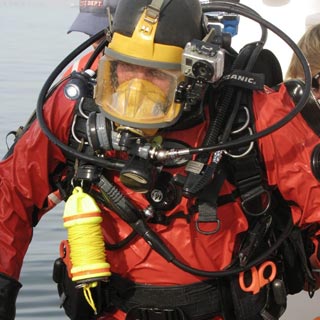
Underwater Hunter and Collector
If spearfishing or collecting underwater specimens interests you, the NAUI Underwater Hunter and Collector course may be just right for you. You'll learn about skin diving techniques, hazards and cautions, safety concerns, spearfishing and collection equipment, and specific techniques on how to hunt and collect responsibly, while minimizing the diving risks of such activities.
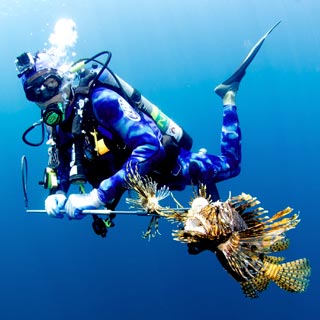
Wreck Diver (External Survey)
If you are at least 18 years old and have a NAUI Advanced Scuba Diver certification or the equivalent thereof, you can take a Wreck Diver (External Survey) course and start exploring sunken vessels, aircraft, and other amazing wrecks in the underwater world. During your training, you will learn about safety, hazards and cautions, special risks of overhead environments, entanglement, limited visibility, deep diving, equipment, location of wrecks, sources of information, search methods, underwater navigation, legal aspects, artifacts, treasure, salvage, archaeology, and much more. Get ready to start exploring!
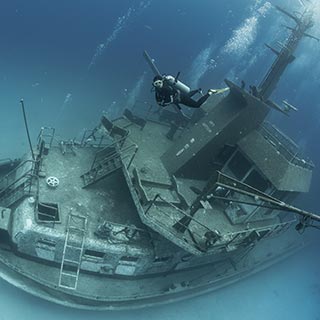
Underwater Ecologist
As you become more environmentally aware of your underwater surroundings, you may find yourself particularly interested in the ecology of two major oceanic environments, the kelp forests and the coral reefs. NAUI proactively promotes sound environmental diving techniques to help protect our planet's ecosystems, and teaching divers how to better interface with the delicate kelp and coral environments. Through the Underwater Ecologist courses, you will learn more about our favorite diving environments.
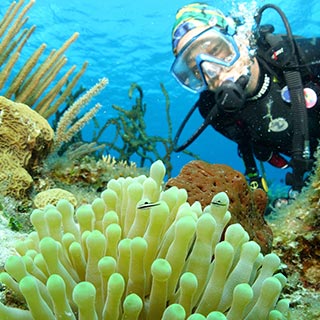
Underwater Ecologist: Kelp Forest
The Underwater Ecologist (Kelp Forest) specialty course focuses on the complex and productive ecosystem bordering much of the west coast of North America, from Alaska to Baja California. Kelp forests are also found in other cooler coastal waters of South America, Tasmania, South Africa, New Zealand, Australia, and many other locations. This course examines the kelp forests, their occupants such as mollusks, crustaceans, fish and marine mammals.
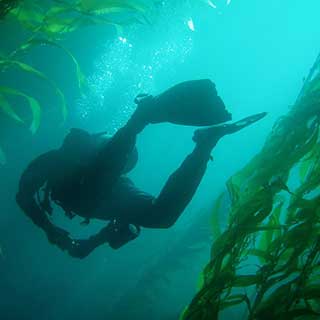
Underwater Ecologist: Coral Reef
Coral reefs are primarily found in three major biogeographic regions of the world: The tropical western Atlantic (Caribbean), the Red Sea, and the Indo-Pacific region. Coral colonies are composed of thousands of tiny polyps, each with its own protective skeleton. The Underwater Ecologist (Coral Reef) specialty course focuses on the vertebrates and invertebrates of the complex living reef. This course examines coral zonation, seagrass beds, lagoons, mangroves, and the common reef algae, invertebrates and reef fishes.
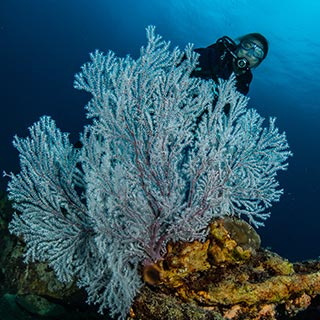
Underwater Archaeologist
Qualified divers are essential to collect and record archaeological data on submerged cultural resources and often perform invaluable volunteer assistance to accredited archaeologists by assisting during field work. Learn specific skills and knowledge that are helpful for wreck diving activities and provide increased enjoyment when visiting submerged cultural resources. You'll gain the basic information and skills that are used in underwater archaeological interpretation of wreck and other sites, as well as mapping, sketching, and researching techniques.
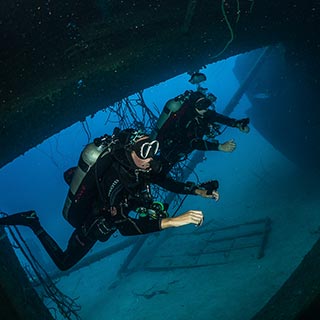
Recreational Hookah Diver
Learn the techniques needed use a surface supplied Recreational Hookah system underwater. Hookah dive systems eliminate the need for cylinders by pumping air from the surface to divers. Graduates of this course are not certified as Scuba Divers but are considered competent to use recreational hookah diving systems.
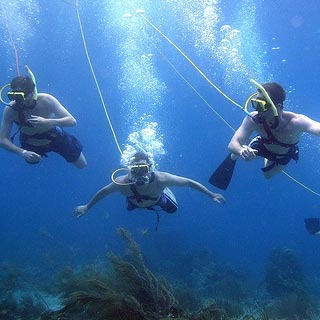
Get Started
Prerequisites vary so check with your NAUI Training Center or instructor for complete details. To find a NAUI Training Center or instructor near you by visiting the NAUI Dive Center and Professional Locator.
What’s Next?
NAUI offers a full range of specialty courses designed to enhance your enjoyment of the underwater world while minimizing risks associated with scuba diving. Continue your NAUI training with any of over 50 NAUI courses to choose from or enroll in the NAUI Master Scuba Diver course for a more comprehensive understanding of the knowledge and science behind the sport of diving and the marine environment.